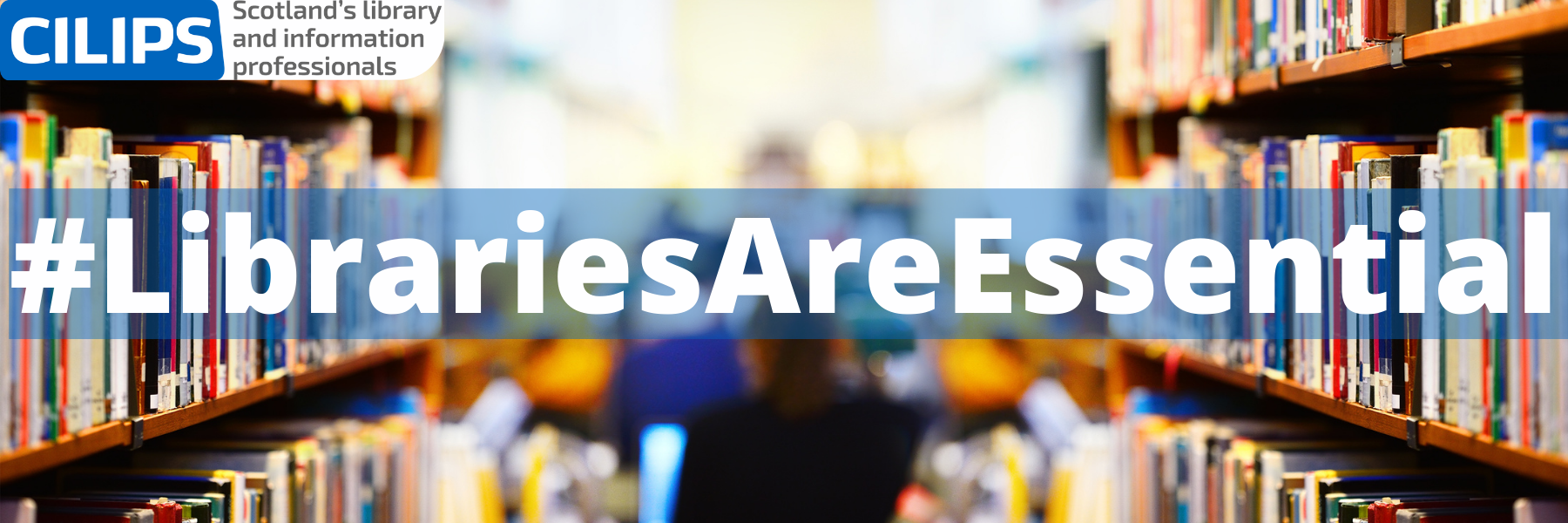#LibrariesAreEssential to LGBTQ+ Communities
Category: #LibrariesAreEssential, Blog
by Isadore Auerbach George, Director and Founder of Book 28
Almost fifteen years ago, community health and social care researcher Jacqueline Goldthorp wrote a paper called ‘Can Scottish library services claim they are socially inclusive of all minority groups when lesbian fiction is still so inaccessible?’ While drawing attention to the lack of availability of broad-ranging lesbian fiction in Scottish public libraries, Goldthorp wrote of the “psychological support and sense of inclusion” that reading such fiction can provide to lesbian women. If you research LGBTQ+ provision in public libraries, this is something you will find again and again: LGBTQ+ people have a strong desire to ‘find’ themselves in the stacks. This manifests in many forms: from wanting romances that show the possibilities of a queer happy-ever-after; to histories that are so often left out of the mainstream; to getting simple information on legal rights, medical care and local community groups.
The psychological and material benefits of being able to access this material for free, in a welcoming space, are huge. This becomes especially relevant when we examine the continued marginalization of LGBTQ+ people in the UK, with as many as a quarter of homeless young people identifying as LGBTQ+, and LGBTQ+ people, on average, earning less than their straight and cisgender counterparts. Many BAME and POC LGBTQ+ people say they have faced racism within the LGBTQ+ spaces that they turned to for inclusion. To an LGBTQ+ person with little income and community isolation, being able to walk into a public library that has even a small selection of well-curated LGBTQ+ books and information about local support is huge.
Since Goldthorp’s 2007 paper, a lot has improved in terms of awareness amongst UK libraries in supporting LGBTQ+ users. Some now include collecting LGBTQ+ works in their policies, are actively trying to improve representation in their collections, run LGBTQ+ reading groups or LGBT History Month events like those in Lambeth, Sheffield and Edinburgh. Special libraries, such as Glasgow’s Women’s Library, hold significant LGBTQ+ collections (click here for GWL’s LGBTQ Collection Online Resource) and do extensive programming, while Scottish university libraries are being challenged by new professionals to enhance the scope and scale of their collections. And yet as recently as 2015, library researcher Alanna Broadley found that “no public library services in Scotland had a collection development policy that addressed the need for LGBT fiction or materials for LGBT users” (p.69) and it is clear that much more still needs to be done.
In some places, LGBTQ+ provision has actually gone downhill, with cuts to stock budgets weeding ‘niche’ collections in favour of guaranteed-circulators like bestsellers and trained library staff being replaced with casual volunteers with little knowledge of equalities. Financially-strained councils have been known to ‘colocate’ other services, such as police, in library spaces, or even hand branches over to community groups like churches, making them feel less welcoming to many LGBTQ+ people. An atmosphere of increasing hostility to trans people has seen efforts to support them in libraries attacked, as with the repudiation of Drag Queen Story Time; and recently, trans writing researcher Harry Josephine Giles wrote, ‘Scottish literature has a transphobia problem’, potentially making it harder for libraries forced to rely on mainstream stock suppliers to bring trans writers work into the collection. And, seeing that hundreds of libraries have been closed permanently in the last ten years across the UK, we are faced with a worst case scenario: there are no queer books in a closed public library.
At Book28 Library, we both advocate for the provision of collections and services for LGBTQ+ in public libraries and run our own small collection from the Outside Project LGBTIQ+ homeless shelter and community centre. The reception from the community has been resoundingly positive: so many people have told us about the safety and affirmation they feel in being able to find books that reflect their experiences. Although some still have anxiety about their ability to find such books at their local public library, they are often pleasantly surprised and relieved when we are able to tell them about the work our Local Authority (Islington) has done with specialists like Gay’s the Word. Our experience suggests that well-funded, professionally staffed public libraries have a world of benefit to offer LGBTQ+ people. For this and so many other reasons, we believe that #LibrariesAreEssential.
Book 28 is a small LGBTIQ+ library, currently run out of the Outside Project homeless shelter and community centre in London. They advocate for better services for queer people in public libraries throughout the UK. You can find more about their work on their website, www.book28.weebly.com. Isadore Auerbach George is a school librarian and queer librarianship researcher. You can follow him on Twitter @SadoreLi.
For CILIPS’ evolving collection of LGBTQ+ friendly resources for libraries and librarians, please click here.

![Tweet from Book28: It's #NationalLibrarianDay! Tell us your fondest memories of librarians! They play such a key role in creating safe and nurturing environments! Big Thank you to all the heard working Librarians near and far! Reply from james mudson (@townmice): when i joined my local lib my legal name wasn't changed and i was so anxious abt having to say "uhm can i have my account opened under 'James'?" and bracing for an interrogation but the librarian immediately got it and made 0 fuss... seeing her at the desk makes me feel so safe [emoji of a smiling face with a single tear]](https://www.cilips.org.uk/wp-content/uploads/2021/04/LGBTQblog.png)
